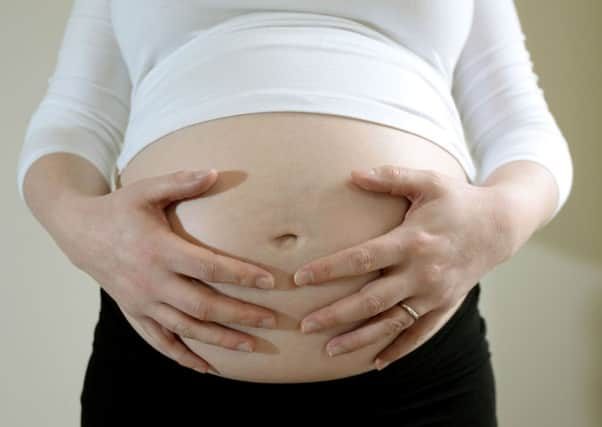NHS to target mental illness in pregnancy


Around 12 per cent of women experience depression and 13 per cent suffer anxiety at some point during and after pregnancy, with many experiencing both.
One in five women is affected in the first year after birth, while there is an increased risk of psychosis in the weeks afterwards.
Advertisement
Hide AdAdvertisement
Hide AdThe National Institute for Health and Care Excellence (Nice) today says doctors, nurses, health visitors and midwives will be given updated guidelines on how to safely treat women before, during and after pregnancy.
Parents experiencing stillbirth should be given the option of seeing a photograph of their baby, seeing and holding the baby and having mementos, with additional follow-up care.
Pregnant women with an extreme fear of childbirth will be given the chance to discuss them and requests for planned caesarean sections should be respected.
Extra support and advice should be offered for women who have experienced a traumatic birth.
Advertisement
Hide AdAdvertisement
Hide AdPotential mothers-to-be with new, existing or past mental health problems should also be advised on contraception and how pregnancy and childbirth could lead to a risk of relapse.
The effects of a mental health problem on the woman, foetus or baby as well as how it may affect parenting should also be discussed.
The guidelines come two weeks after Charlotte Bevan, 30, went missing from a maternity hospital in Bristol with her four-day-old daughter, Zaani Tiana. The bodies of Ms Bevan, who is believed to have suffered depression, schizophrenia and severe sleep deprivation after giving birth, and Zaani were found in the Avon Gorge.
Prof Mark Baker, Nice Centre for Clinical Practice director, said: “Mental health problems during and after pregnancy are common. More than one in 10 women will experience depression at some point during their pregnancy. This increases to one in five women during the first year after giving birth.
Advertisement
Hide AdAdvertisement
Hide Ad“During pregnancy and the postnatal period, women may also experience other mental health problems. Giving women the right treatment at the right time can have a profound effect - not just for the mother, but her family too. The effect of getting this right can last for years.”
Patrick O’Brien, of the Royal College of Obstetricians and Gynaecologists, said it was important to recognise what was “not normal” around pregnancy.
“Many women experience low mood following childbirth; however, this is normal and should pass,” he said.
“However, women who have pre-existing mental health conditions, or who develop a more serious mental health condition antenatally or postnatally, need specialist attention and care.
Advertisement
Hide AdAdvertisement
Hide Ad“Mental illness makes a significant contribution to maternal deaths and therefore it is vital these women receive the right support at the right time by the right professional.”
But Elizabeth Duff, of parenting charity NCT, questioned how the guidelines could be put into practice.
“We urgently need to see an increase in specialist services, such as mothers and baby units, and better training for health practitioners to make sure no new parent suffers alone,” she said.